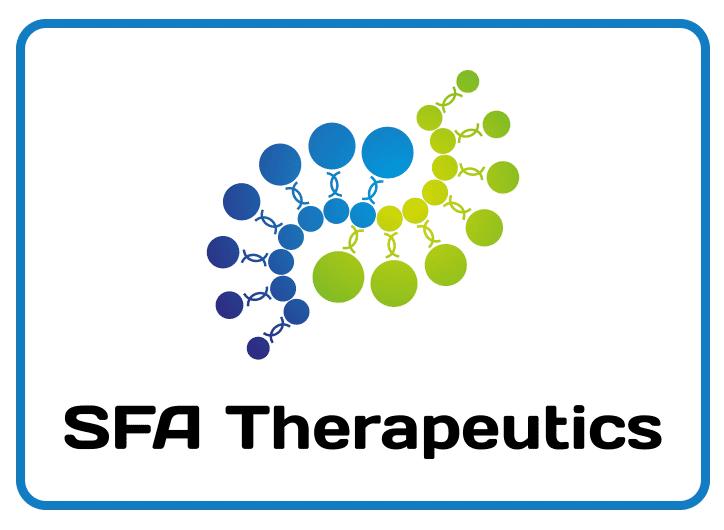预约演示
更新于:2025-05-07
IL-12 x IL-23
更新于:2025-05-07
关联
37
项与 IL-12 x IL-23 相关的药物作用机制 IL-12p40抑制剂 [+1] |
在研机构 |
原研机构 |
非在研适应症 |
最高研发阶段批准上市 |
首次获批国家/地区 中国 |
首次获批日期2025-04-15 |
作用机制 IL-12抑制剂 [+1] |
非在研适应症- |
最高研发阶段批准上市 |
首次获批国家/地区 澳大利亚 |
首次获批日期2025-02-11 |
242
项与 IL-12 x IL-23 相关的临床试验NCT06807593
Treatment of Immune Checkpoint Inhibitor-related Diarrhea and/ or Colitis With Ustekinumab in Cancer Patients
The goal of this clinical research study is to learn if ustekinumab can help to control immune-related diarrhea and/or colitis in cancer patients.
开始日期2025-06-30 |
NCT06863493
Study of the Safety and Effectiveness of Oral SFA-002 Compared to Oral Apremilast (Otezla) Tablets and Placebo in Mild to Severe Plaque Psoriasis
The goal of this clinical trial] is to learn if SFA002 can treat mild, moderate and severe plaque psoriasis as good or better than Otezla, compared to placebo in adult and pediatric patients.
The main questions it aims to answer are:
How much does oral SFA002 treatment improve plaque psoriasis measured at different timepoints, 12 weeks, 24 weeks and 52 weeks of treatment.
How much does Oral Otezla (Apremilast) improve plaque psoriasis measured at different timepoints, 12 weeks, 24 weeks and 52 weeks of treatment.
These treatments will be compared to placebo, a look-alike substance that contains no drug.
Participants will be randomly placed into 3 groups to receive either SFA002, or oral apremilast or placebo for the duration of the trial. Patients that do not respond to apremilast or placebo treatment in 12 weeks will be offered the opportunity to take SFA002 for the remainder of the study.
There may be a higher burden for participants in this study compared to usual standard of care. Participants will attend regular visits per routine clinical practice. The effect of the treatment will be checked by medical assessments, checking for side effects, and questionnaires.
The main questions it aims to answer are:
How much does oral SFA002 treatment improve plaque psoriasis measured at different timepoints, 12 weeks, 24 weeks and 52 weeks of treatment.
How much does Oral Otezla (Apremilast) improve plaque psoriasis measured at different timepoints, 12 weeks, 24 weeks and 52 weeks of treatment.
These treatments will be compared to placebo, a look-alike substance that contains no drug.
Participants will be randomly placed into 3 groups to receive either SFA002, or oral apremilast or placebo for the duration of the trial. Patients that do not respond to apremilast or placebo treatment in 12 weeks will be offered the opportunity to take SFA002 for the remainder of the study.
There may be a higher burden for participants in this study compared to usual standard of care. Participants will attend regular visits per routine clinical practice. The effect of the treatment will be checked by medical assessments, checking for side effects, and questionnaires.
开始日期2025-06-01 |
申办/合作机构 |
NCT06786507
A Direct Head-to-head Comparison of Ustekinumab with Infliximab for the Treatment of Ulcerative Colitis
the goal of this study is to compare the efficacy of ustekinumab with infliximab for the treatment of ulcerative colitis aim of the study :
1. Compare effectiveness of ustekinumab versus infliximab therapy in remission achievement in UC patients.
2. Compare safety of ustekinumab therapy versus infliximab therapy in UC
3. To asses quality of life of ustekinumab therapy versus infliximab therapy in UC patients.
1. Compare effectiveness of ustekinumab versus infliximab therapy in remission achievement in UC patients.
2. Compare safety of ustekinumab therapy versus infliximab therapy in UC
3. To asses quality of life of ustekinumab therapy versus infliximab therapy in UC patients.
开始日期2025-05-15 |
申办/合作机构 |
100 项与 IL-12 x IL-23 相关的临床结果
登录后查看更多信息
100 项与 IL-12 x IL-23 相关的转化医学
登录后查看更多信息
0 项与 IL-12 x IL-23 相关的专利(医药)
登录后查看更多信息
6,907
项与 IL-12 x IL-23 相关的文献(医药)2025-12-31·Cancer Biology & Therapy
Identification of endoplasmic reticulum stress-related genes as prognostic markers in colon cancer
Article
作者: Li, Wei ; Liu, Xian ; Sun, Wei ; Li, Yaqiang ; Xu, Baohong ; Xu, Wenjing ; Kuai, Dayu
2025-12-01·Immunologic Research
Immunomodulatory effects of alexidine dihydrochloride on mammalian macrophages through the modulation of the JNK pathway
Article
作者: Aydın, Ece ; Ercan, Semanur ; Ayaz, Furkan ; Atalay, Begüm Rana ; Başkan, Ömer Mete ; Aydemir, Esra
2025-07-01·European Journal of Pharmacology
To explore the potential combined treatment strategy for colorectal cancer: Inhibition of cancer stem cells and enhancement of intestinal immune microenvironment
Article
作者: Geng, Jia-Xin ; Zhang, Bo-Wen ; Xu, Dan-Qi ; Gao, Shuo ; Dai, Lin ; Mu, Xiao-Qin ; Han, Xing ; Zhang, Yang ; Arshad, Muhammad ; Fu, Yin ; He, Li-Qian ; Fan, Chao-Yuan ; Yang, Zhou ; Gao, Zhan-Kui
674
项与 IL-12 x IL-23 相关的新闻(医药)2025-05-04
关注并星标CPHI制药在线处于舆论中心的康方生物,最近有点忙。重磅产品——派安普利单抗获FDA批准,成为首个由中国公司全过程独立主导(研发,临床,生产供药和申报注册)且成功获得FDA批准上市的创新生物药。同时,核心产品依沃西单抗头对头战胜了百济神州的替雷利珠单抗联合疗法。接着,依沃西单抗(AK-112)与K药头对头的总生存期(OS)的期中分析结果读出。在一系列利好消息加持下,康方生物股价大涨,市值已高达800多亿港元。康方生物正在长成Biopharma的模样。被高盛背书的核心大单品依沃西单抗是康方生物基于Tetrabody 技术,自主研发的一款PD-1/VEGF(血管内皮生长因子)双特异性抗体,其可阻断 PD-1 与 PD-L1 和 PD-L2 的结合,并同时阻断VEGF与VEGF受体的结合,达到抑制肿瘤免疫逃逸和血管新生的目的。2022 年 12 月,康方与Summit Therapeutics达成协议,以 50 亿美元总额实现 License out 交易,罕见高额引起行业震动。2024年5月,依沃西单抗获NMPA批准上市,用于 EGFR-TKI 治疗进展的局部晚期或转移性 nsq-NSCLC(非鳞状非小细胞肺癌),同年 11 月被纳入 2024 年国家医保目录。依沃西的上市标志着“肿瘤免疫+抗血管生成”协同抗肿瘤机制的双特异性抗体新药正式进入临床应用。要说依沃西的一战成名,还是在与“药王”K药(帕博利珠单抗)的头对头战役中。2024年世界肺癌大会上,康方公布了依沃西(AK-112)单药对比K药单药一线治疗PD-L1表达阳性(PD-L1 TPS≥1%)的局部晚期或转移性NSCLC 的注册性III期临床研究(HARMONi-2)数据。在意向治疗人群(ITT)中,依沃西单药相较K药单药显著延长了患者PFS(无进展生存期),mPFS(中位无进展生存期)近乎是K药组两倍(11.14个月vs 5.82个月),且显著降低患者疾病进展/死亡风险达49%。依沃西单药对比帕博利珠获得决定性胜出阳性结果,这是全球首个击败药王的产品。不过由于金标准OS数据未出,且康方生物未能透露更多详细数据,人们对依沃西的含金量依然存疑。直到4月25日,依沃西头对头K药的OS终于出来了。结果显示,在ITT人群中,在39%成熟度时进行的OS的期中分析(本次分析α分配值仅为0.0001),依沃西单抗对比帕博利珠单抗具有显著的临床生存获益,HR=0.777,降低死亡风险22.3%。尽管合作方Summit在这一消息公布后,股价暴跌近37%,但这次发布的数据,大家要关注的核心是,39% OS成熟度的时候,分配的α值是0.0001。据花旗分析师Yigal Nochomovitz博士称这一初始总生存数据是一个“极好的结果”,并指出0.0001的统计学门槛“异常高”。这是因为,统计学上常用的显著性水平,总单边α值是0.025。而这次期中分析只用了0.0001,剩下的0.024留给最终OS分析。在α值仅0.0001的情况下,HR还能达到0.777,显示依沃西的OS潜力极强。未来随着数据成熟(更多患者事件发生),HR可能进一步缩小,最终分析达到统计学显著性的概率高达99.99%。基于此结果,依沃西单抗的新适应症获NMPA批准,用于一线治疗PD-L1阳性NSCLC。值得一提的是,K药作为肿瘤免疫治疗的标杆,2024年销售额高达294.82亿美元。过去,无论是单药还是联合疗法,尚没有在头对头试验中击败K药的先例。依沃西单抗是全球首例在与K药头对头比较中,同时在PFS(HR=0.51)和OS(HR=0.777)上都胜出的疗法。依沃西若成为NSCLC一线治疗新标准,将冲击K药的300亿美元市场。目前,Summit公司还在开展名为HARMONi-3的临床试验,旨在比较依沃西单抗联合化疗与K药联合化疗在一线转移性鳞状非小细胞癌中的疗效,开展美国和欧洲在内的海外临床研究部分。预计在2028年初,这一临床试验将会公布最终结果。届时,依沃西单抗与K药谁更胜一筹,将更有说服力。除了与K药头对头外,康方生物于4月23日还公布了在一线治疗晚期sq-NSCLC的III期临床研究中,依沃西单抗联合化疗与百济的PD-1替雷利珠单抗联合化疗的头对头结果。经独立数据监察委员会(IDMC)评估,期中分析显示强阳性结果:达到PFS的主要研究终点,具有统计学显著意义和重大临床获益。依沃西单抗面对实力强劲的对手,再次以硬核的临床数据,取得第二次头对头胜利,证实了其突破性临床价值和创新竞争力。全球顶级投行高盛曾在一份报告中预测,到2041年,依沃西单抗的销售峰值将达到530亿美元,近乎是K药2024年销售额的2倍。而辉瑞与Summit的联合,无疑将为依沃西单抗的适用范围再添一砖。两家公司于今年2月达成合作,将共同推进依沃西单抗与ADCs药物在多种实体瘤中的联合治疗应用。备受瞩目的明星双抗联合目前备受行业追捧的ADC,两者将会擦出什么样的火花,值得期待。聚焦肿瘤和慢病赛道打造“小而美”Biopharma与传统Biopharma广泛布局不同,康方目前管线主要聚焦肿瘤和慢病赛道,试图打造“小而美”Biopharma。肿瘤领域除了依沃西单抗外,康方生物还有自主研发的PD-1单抗药物派安普利单抗(商品名:安尼可),它是全球首个采用IgG1亚型并进行Fc段改造的PD-1单抗。其Fc段改造通过消除与FcγR的结合,避免了抗体依赖性细胞吞噬(ADCP)和细胞因子释放(ADCR),从而提升抗肿瘤活性并降低全身免疫毒性。近日,派安普利单抗获FDA批准,用于治疗复发或转移性鼻咽癌(NPC)的一线治疗和用于以铂类为基础的化疗治疗失败的转移性鼻咽癌的两项适应症。这是首个由中国公司全过程独立主导(研发,临床,生产供药和申报注册)且成功获得FDA批准上市的创新生物药,也是中国第三个成功获FDA批准上市的PD-1单抗。另外,早在2022年6月,康方生物的PD-1/CTLA-4双抗卡度尼利获NMPA批准上市,成为全球首个获批的肿瘤免疫治疗双抗新药,也是中国 第一个双特异性抗体新药。卡度尼利单抗目前已拿下二线宫颈癌适应症,且于2024年12月,和依沃西单抗一起,通过医保谈判被纳入国家新版医保目录。今年初,这两款药已完成所有挂网工作(西藏除外),纳入30+省份的双通道目录,实现1000余家医院准入,预计2025年底实现2000+医院覆盖。除了双抗产品外,康方生物还积极布局ADC,已有两款ADC新药推进到临床阶段,其中第二款ADC新药AK146D1首次披露为Trop2/Nectin-4 ADC,未来康方生物将推进多款ADC候选产品到临床阶段。除此以外,康方生物还布局了mRNA肿瘤疫苗,并且将目标瞄准“癌王”胰腺癌。4月6日,康方生物在Clinicaltrials.gov网站上注册了个体化mRNA疫苗单药或联合PD-1/CTLA-4双抗、PD-1/VEGF双抗辅助治疗胰腺癌的IIT临床试验。在慢病领域,康方生物自主研发的PCSK9抑制剂伊努西单抗于2024年10月获NMPA批准,用于治疗原发性高胆固醇血症和混合型高脂血症,以及杂合子型家族性高胆固醇血症,是康方生物在非肿瘤领域的首个获批产品,今年4月,康方生物的依若奇单抗在国内上市,用于对环孢素、甲氨蝶呤(MTX)等其他系统性治疗或PUVA(补骨脂素和紫外线A)不应答、有禁忌或无法耐受的中度至重度斑块状银屑病的成年患者的治疗。依若奇单抗是中国首个且唯一获批上市的IL-12/IL-23“双靶向”单克隆抗体,其上市为数百万银屑病患者带来了新的治疗药物选择。很明显,无论是心血管疾病还是银屑病,都是容易出重磅炸弹的领域。康方生物的野心可见一斑。过去一年,康方生物由于没有了高额的授权收入导致营收和净利润锐减并由盈转亏,总收入下滑53.08%至约21.24亿元,但同期的产品商业销售收入实现了同比24.88%的涨幅,达20.02亿元,同时经营性亏损持续收窄。接下来随着两款核心产品卡度尼利单抗、依沃西单抗被纳入2024年医保目录,2025年将进一步放量,加之不断解锁新的适应症,未来无疑将为康方生物贡献更多的收入。而康方生物也在从一个名不见经传的Biotech历变为一个冉冉升起的全球性Biopharma。参考来源: 1.康方官网,CDE官网 2.国际金融报,《康方生物再传喜讯!PD-1在美拿下两项适应症》END领取CPHI & PMEC China 2025展会门票来源:CPHI制药在线声明:本文仅代表作者观点,并不代表制药在线立场。本网站内容仅出于传递更多信息之目的。如需转载,请务必注明文章来源和作者。投稿邮箱:Kelly.Xiao@imsinoexpo.com▼更多制药资讯,请关注CPHI制药在线▼点击阅读原文,进入智药研习社~
临床3期上市批准引进/卖出临床结果医药出海
2025-05-04
往期推荐产品动态依沃西一线治疗NSCLC获批上市(全球首个对比帕博利珠单抗获显著阳性结果的III期研究)产品动态美国重磅上市!派安普利单抗2个适应症获FDA批准上市,用于晚期鼻咽癌治疗产品动态康方生物爱达罗®(依若奇,IL-12/IL-23)治疗中重度斑块状银屑病适应症获批上市临床进展首个自研ADC澳洲临床入组!康方生物IO 2.0+ADC战略再进一步临床进展非肿瘤首个双抗|康方生物全球首创IL-4Rα/ST2(AK139)IND获受理,剑指呼吸系统及皮肤疾病领域临床进展依沃西方案对比替雷利珠方案1L治疗sq-NSCLC的Ⅲ期临床完成患者入组临床进展康方生物古莫奇(IL-17)单抗新药上市申请获NMPA受理数据发布荣登Nature Medicine!卡度尼利方案1L治疗胃癌Ⅲ期研究结果全文发表产品动态康方生物卡度尼利、依沃西纳入2024年国家医保目录临床进展头对头度伐利尤单抗方案,依沃西方案一线治疗胆道肿瘤III期临床完成首例患者入组临床进展全球首个CD47单抗实体瘤III期临床首例入组:依沃西联合莱法利一线治疗HNSCC(对比帕博利珠单抗)数据发布卡度尼利一线宫颈癌III期研究成果荣登《Nature Reviews Clinical Oncology》(影响因子高81.1)数据发布IGCS 2024 LBA & 《柳叶刀》主刊,卡度尼利1L宫颈癌III期研究PFS和OS双阳性结果重磅发布产品动态一线胃癌全人群获批!康方生物卡度尼利获批第二个适应症产品动态获FDA快速通道资格!依沃西国际多中心III期研究HARMONi完成入组,2L+EGFRm NSCLC数据发布全球首个对比帕博利珠单抗取得显著阳性结果的随机对照大III期研究——依沃西HARMONi-2重磅研究成果在WCLC发表临床进展康方生物卡度尼利联合方案治疗uHCC的III期临床研究完成首例患者入组临床进展针对PD-1/L1治疗进展晚期胃癌,卡度尼利+普络西(VEGFR-2)联合疗法Ⅲ期临床完成首例入组数据发布ASCO Oral & JAMA主刊丨Ⅲ期HARMONi-A研究重磅公布,依沃西疗法有望改变EGFR-TKI进展肺癌全球治疗标准临床进展史无前例!康方依沃西单药对比帕博利珠1L治疗PD-L1阳性NSCLC的III期临床获决定性胜出阳性结果产品动态康方生物双抗卡度尼利一线治疗晚期宫颈癌全人群的sNDA获CDE受理临床进展国际多中心注册性III期研究HARMONi-3中国启动:依沃西单抗联合化疗对比帕博利珠单抗联合化疗1L治疗sq-NSCLC产品动态高达50亿美金!康方生物与Summit就PD-1/VEGF双抗依沃西达成合作和许可协议产品动态全球首个肿瘤免疫治疗双抗——开坦尼®(PD-1/CTLA-4双抗,卡度尼利)获批上市
临床3期ASCO会议抗体药物偶联物上市批准临床结果
2025-05-03
·药智网
在自免治疗领域,传统生物制剂一直长期占据主导地位。以修美乐为代表的经典药物虽疗效显著,但因需频繁注射给药、存在潜在感染风险等局限性,导致患者用药依从性较低。与之形成鲜明对比的是,口服自免药物凭借居家便捷给药、无需冷链运输、生产成本可控等多重优势,正在加速崛起,成为行业下一个爆点。1下一个爆点在全球范围内,约有100种不同类型的自免疾病,这些疾病几乎可以影响从皮肤、关节到消化系统等身体的任何部位。流行病学数据显示,银屑病、特应性皮炎、哮喘等大适应症覆盖的患者群体已突破亿级规模,构成自免领域的核心治疗需求。根据弗若斯特沙利文的数据,全球自身免疫疾病药物市场规模正在快速增长。规模由2018年的1137亿美元增长至2022年的1323亿美元,并将于2030年攀升至1767亿美元。图片来源:弗若斯特沙利文报告长期以来,生物制剂凭借精准靶向的优势,占据自免药物市场的主导地位,但这类药物存在明显的局限性,例如依赖注射给药,需要专业医护操作;对冷链运输要求高,增加了使用难度和成本;同时,还存在潜在的免疫原性风险,这些因素导致患者依从性普遍较低。小分子靶向药物的技术突破,为自免治疗领域带来新的转机。口服剂型的小分子药物具备诸多天然优势,诸如无需专业医护操作的便捷性;其良好的穿透性使其能够突破血脑屏障,实现更精准的靶向治疗;可与生物药联合使用发挥协同潜力。此外,相较于生物药复杂的生产工艺,口服药生产成本大幅降低,进一步凸显了其在市场竞争中的优势。“2024年全球自免药物销售额TOP10”榜单显示,艾伯维的JAK1抑制剂乌帕替尼,凭借在类风湿关节炎、特应性皮炎、溃疡性结肠炎等多种自免疾病治疗中的出色表现,2024年销售额飙升至59.71亿美元,同比增长50.4%,位居榜单第七。Incyte/诺华联合研发的小分子JAK1/JAK2抑制剂芦可替尼,也以49.11亿美元的销售额成功跻身第九。这两款小分子口服药的亮眼成绩,标志着口服自免药物已跻身全球TOP10自免药物行列,未来凭借优势将更受市场青睐。2巨头竞逐当前,国际制药巨头正通过高频次的并购与战略合作资本动作,加速填充下一代口服自免药物管线,在差异化竞争中构建技术与产品双壁垒。强生:环肽技术重构IL-23口服化赛道IL-23作为连接先天免疫与适应性免疫的关键节点,其异常激活与银屑病、溃疡性结肠炎(UC)、克罗恩病(CD)等多种疾病密切相关。强生、艾伯维、诺华等企业早已在注射用IL-23抑制剂领域分食市场:强生的Stelara(乌司奴单抗)2024年销售额达103.6亿美元,艾伯维的Skyrizi(利生奇珠单抗)2024年销售额为117亿美元。强生通过与Protagonist公司合作,开发口服环肽类IL-23受体拮抗剂Icotrokinra(JNJ-2113),这是第一个选择性阻断IL-23受体的靶向口服肽,并且适用于12岁及以上患有中度至重度斑块状银屑病的成人和青少年。ICONIC-LEAD研究结果显示,治疗中重度银屑病患者24周时,PASI 90应答率达到64.9%,显著优于安慰剂组的4.4%;74.1%的JNJ-21133治疗患者达到0/1分。礼来:押注口服IL-17在银屑病领域,IL-17靶点是研发焦点。以注射用单抗为代表的创新药,如诺华的苏金单抗(Cosentyx)、礼来的依奇珠单抗(Taltz)凭借较好的治疗效果,已成为全球银屑病治疗的核心产品。2024年,依奇珠单抗以18%的增速实现销售额32.6亿美元;苏金单抗以25%的增速实现61.41亿美元的销售额,成为诺华销售额第二大药物。这些药物的市场表现印证了IL-17靶点的巨大潜力。礼来并未满足于依奇珠单抗取得的现有成绩,而是积极探索新的增长点,将目光投向口服药物领域。2023年以24亿美元收购DICE Therapeutics而获得DC-806和DC-853,正式进军口服IL-17小分子药物赛道。DICE Therapeutics通过其核心技术将IL-17受体的结合口袋转化为可被小分子识别的结构,让小分子药物能精准结合IL-17受体,阻断信号传导。尽管DC-806因肝毒性折戟,但是迭代分子DC-853正在进行银屑病临床2期试验,相比DC-806活性更强,有望实现更低的给药剂量。赛诺菲:IRAK4降解剂的差异化突围在JAK抑制剂竞争白热化、IL-23/IL-17通路拥挤的背景下,赛诺菲另辟蹊径,将宝押在IRAK4降解剂上。2020年赛诺菲与Kymera达成高达20亿美元的研发合作,共同开发针对IRAK4的潜在first-in-class候选降解剂KT-474(SAR444656)。IRAK4作为TLR通路的核心激酶,其异常激活与多种自身免疫病相关,而传统IRAK4抑制剂因抑制范围过广,导致感染风险升高。降解剂则通过E3泛素连接酶精准降解IRAK4。在1期特应性皮炎临床中,瘙痒程度减轻63%,评估患者疾病程度和严重性的EASI评分下降36%。艾伯维:NLRX1与IL-23双管齐下艾伯维于2024年斥资收购Landos Biopharma,将其first-in-class口服NLRX1激动剂NX-13纳入管线。作为定位于线粒体的关键免疫调控蛋白,NLRX1通过独特机制抑制NF-κB通路过度激活,从源头阻断多种促炎因子级联反应。目前NX-13已进入溃疡性结肠炎2期临床研究。在成功打造IL-23单抗明星产品Skyrizi(利生奇珠单抗)的基础上,艾伯维进一步强化该靶点布局。艾伯维通过收购Nimbus获得处于临床前阶段的口服IL-23抑制剂,同步纳入其专有肽合成平台(Nimble技术)。这一布局旨在构建“生物药+小分子”协同产品线:前者凭借高特异性占据中重度患者市场,后者以口服便利性渗透轻中度人群及维持治疗场景,形成全病程覆盖的立体化竞争优势。3在挑战中突围尽管前景广阔,口服自免药物的研发之路却充满艰难险阻,诸多技术难题与现实困境亟待攻克。自身免疫疾病的发病机制极为复杂且高度异质,以IL-23通路为例,尽管靶向该靶点的生物药Skyrizi已成为百亿级单品,但口服小分子抑制剂需精准抑制IL-23信号,避免因抑制同源的IL-12而干扰Th1细胞功能。对此,强生的Icotrokinra另辟蹊径,通过靶向IL-23R而非p40亚基,实现了对IL-23的高度选择性抑制,为同类药物研发提供了新思路。小分子药物的安全性问题必须重视。如口服JAK抑制剂因血栓风险被FDA黑框警告;PROTAC分子潜在的非靶向毒性更需长期系统监测。此外,中国市场的药品集采政策持续推进,促使临床用药选择向高性价比产品倾斜,这对研发成本动辄10亿美元的创新药(如口服肽类、PROTAC)而言,如何在这片市场中快速站稳脚跟,值得深入思考。4结语随着艾伯维NX-13、强生JNJ-2113等新一代口服药进入临床,自免治疗正从生物药主导向生物药与口服小分子协同的方向转变。这场始于给药方式的创新,不仅为全球数亿患者带来居家治疗的便利,更标志着自免治疗商业竞争力的重塑。参考资料1、各药企官网、财报开源证券3、荃信生物招股书4、《2024年全球自免药物销售额TOP10》,医药地理声明:本内容仅用作医药行业信息传播,为作者独立观点,不代表药智网立场。如需转载,请务必注明文章作者和来源。对本文有异议或投诉,请联系maxuelian@yaozh.com。责任编辑 | 史蒂文合作、投稿、转载开白 | 马老师 18323856316(同微信) 阅读原文,是受欢迎的文章哦
并购免疫疗法
分析
对领域进行一次全面的分析。
登录
或

生物医药百科问答
全新生物医药AI Agent 覆盖科研全链路,让突破性发现快人一步
立即开始免费试用!
智慧芽新药情报库是智慧芽专为生命科学人士构建的基于AI的创新药情报平台,助您全方位提升您的研发与决策效率。
立即开始数据试用!
智慧芽新药库数据也通过智慧芽数据服务平台,以API或者数据包形式对外开放,助您更加充分利用智慧芽新药情报信息。
生物序列数据库
生物药研发创新
免费使用
化学结构数据库
小分子化药研发创新
免费使用



